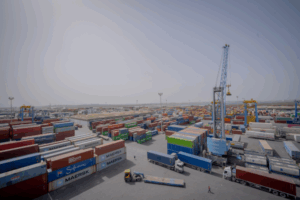What Is Dry Bulk and Why Is It Important
Grains, coal, sugar, and cocoa, dry bulk cargo cover a wide array of products and raw materials. These goods have two traits in common: they are unpacked and are homogeneous. These two properties make it easier for dry bulk cargoes to be dropped or poured into the hold of a bulk carrier.
The Importance of Dry Bulk
Without the dry bulk shipping transported by sea annually, life today would be completely different. The breakfast you have every day contains ingredients coming from other parts of the world through dry bulk shipping, like bread, cereal, coffee, and sugar. Even the metal elements of your stove and pot come by sea, and the coal that generates the electricity to power home appliances is shipped as well. Other dry bulk cargoes include iron ore, fertilizers, sulfur, and cement, as well as a large number of agricultural products like rice and corn.
Advantages of Using Dry Bulk
There are several benefits to using dry bulk, such as:
- Reduced packaging costs
- Larger loading capacities
- More flexibility
- Requires far less manpower
- Special Considerations about Dry Bulk
As the name suggests, dry bulk cargoes need to be kept dry since any moisture could ruin the goods at a considerable cost to the company and the carrier. Other kinds of dry bulk cargoes require special consideration during loading, shipping, and discharge, as they can be dangerous to the ship and crew.
All Seas Shipping & Dry Bulk Services
We have a proven track record of serving dry bulk players around Tunis and the world.
Grains, coal, ores, sugar, fertilizers, etc. All Seas Shipping offers its clients the know-how to achieve optimal vessel turnaround at load and discharge ports.






